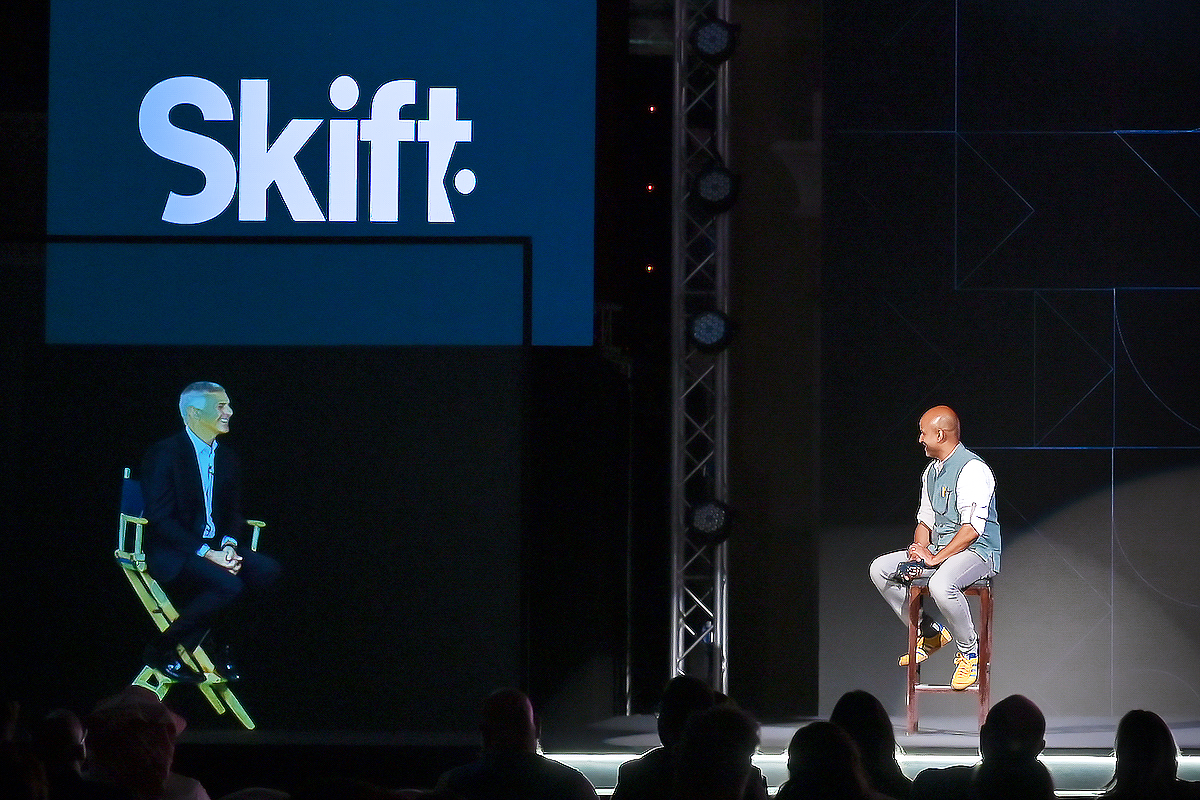Skift Take
Hilton's brand development formula is working. Never say never on acquisitions, but Nassetta doesn't want to be distracted by disadvantages inherited from rivals.
CEO Christopher Nassetta said Hilton expects to organically develop its own new brands rather than chase costly acquisitions in part because “we don’t want to have to fix other people’s problems.”
He said Hilton’s brand portfolio more than doubled to 19 in the 15 years Nassetta has been at Hilton and they are all successful, although some are “a little bit early in gestation.”
“We have designed these in a modern context around exactly what customers want and we built it out of the dust,” Nassetta said. “We built it with our own blood, sweat and tears rather than paying a big price. It’s been great for our shareholders, infinite yields effectively by creating these, and creating brands that really resonate with our customer base.”
Hilton, with 1.2 million rooms and 7,000 properties around the world, has indeed done several major transactions, including dividing the company into “three pieces,” during his tenure, “but we haven’t bought anything” because Hilton is already skilled at organic brand development.
Skift founder Rafat Ali interviewed Nassetta via hologram Wednesday at Skift Global Forum East in Dubai. In addition to the mergers and acquisitions issue, Ali questioned the Hilton boss about public-private partnerships, the luxury segment, business travel, short-term rentals, and the macro environment, among other topics.
Nassetta said some emerging economies in the Middle East and elsewhere will continue to require public-private partnerships, including for infrastructure development and financing, for the next 10-15 years to create momentum.
Every market is different, however, Nassetta said, adding that Dubai is probably a decade ahead of others in the region in infrastructure development while Saudi Arabia — with Hilton’s involvement — is making large investments in travel and tourism through public-private partnerships.
Asked whether Hilton has leaned into the luxury segment too strongly in the region, Nassetta replied: “I don’t think broadly we are going overboard on the high end.”
“We love luxury. We love doing Conrads, we love doing Waldorfs, we love doing LXRs (LXR Hotels) everywhere in the world, and particularly in that region,” Nassetta said, but added that all segments of hospitality are underrepresented in the Middle East.
He said Hilton has to offer different products, including mid-market properties, at a variety of price points to meet demand for disparate trip types to build a “network effect.”
Nassetta challenged the notion that Hilton is not involved in alternative accommodations, noting that it has Conrad and Waldorf residences, Hilton apartments, and extended stay properties, which are “a bridge.”
Referring to extended stay, Nassetta said Hilton could expand in the sector, and is “always looking at those options.”
In other news, Nassetta said pre-Covid 80 percent of Hilton’s corporate travel business was small- and medium-size enterprises, and that rose to 95 percent during the pandemic when big corporations shut down their business travel.
He said Hilton will likely continue to lean into the small- and medium-size company segment over the long-term and he wouldn’t be surprised if it eventually settles into around 85 percent of the hotel’s corporate travel segment.
Nassetta said the macro economic environment around the world is in strong recovery mode with borders reopening, and people becoming more mobile because of remote working. He said it should be clear within 60-90 days whether Chinese travel will return robustly.
“It feels like it is going in that direction,” Nassetta said.
He said there is tremendous pent-up demand for both leisure and business trips, adding “meetings and events, it’s off the charts.”
Although the macro environment will cool, the travel trends he highlighted will get the travel industry through the headwinds.
Nassetta said he will become the chair of the U.S. Travel Association in 2023, and he will actively engage on helping to resolve excessive visa delays. Ali said the waiting time for a U.S. visa in Mumbai, India, is now more than 1,000 days.
The Hilton CEO said Covid got in the way, and borders closed around the world so “I think those muscles atrophied a bit,” referring to visa wait times. He called them “out of whack.”
.
Dwell Newsletter
Get breaking news, analysis and data from the week’s most important stories about short-term rentals, vacation rentals, housing, and real estate.
Have a confidential tip for Skift? Get in touch
Tags: brands, business travel, china, corporate travel, future of lodging, hilton, luxury, mergers, mergers and acquisitions, partnerships, sgfe2022, short-term rentals, skift live, visas
Photo credit: Hilton CEO Christoper Nassetta (left), appearing via a hologram, was interviewed by Skift founder Rafat Ali at Skift Global Forum East in Dubai December 14, 2022. Skift
